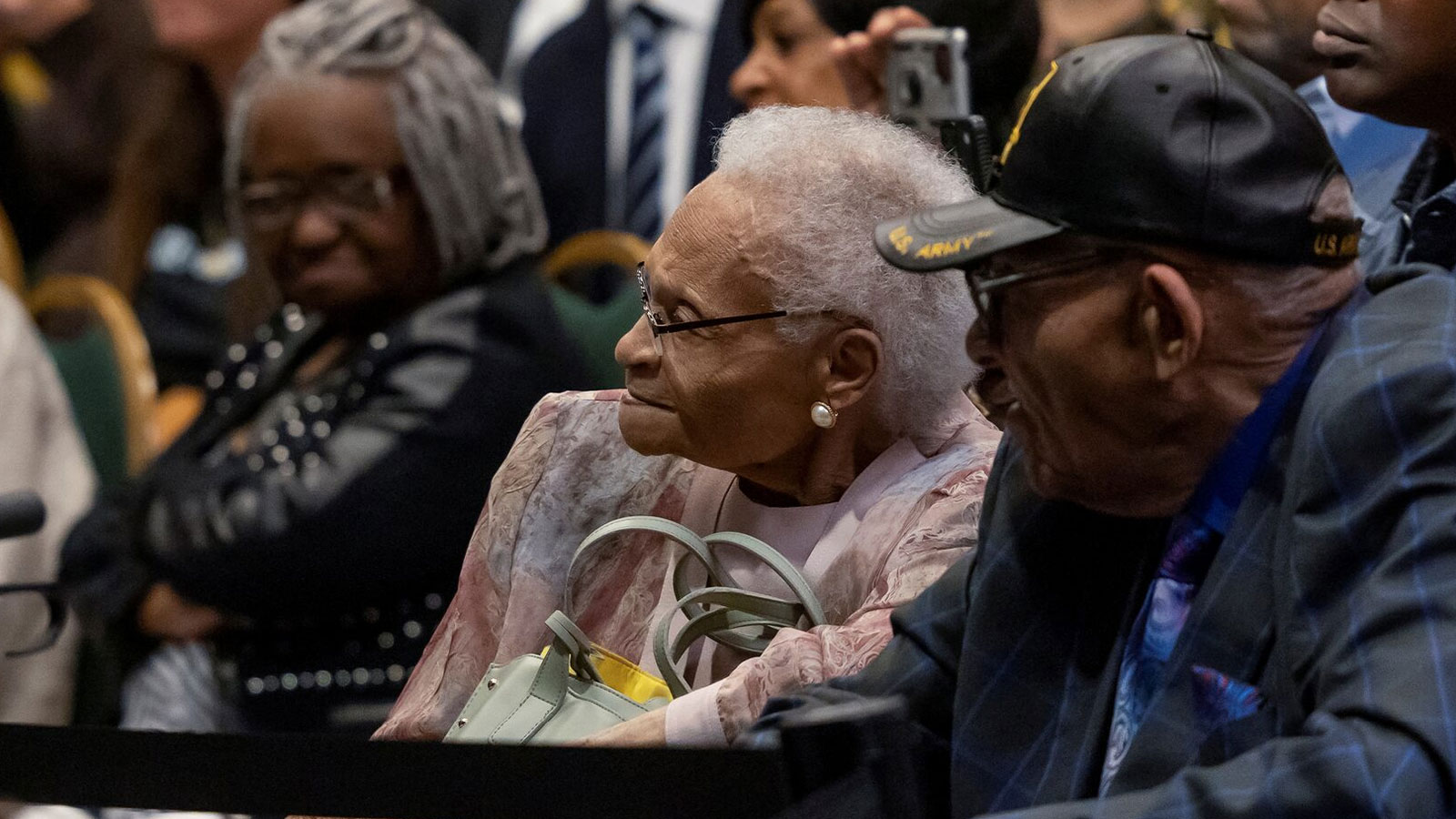OKLAHOMA, TULSA — Our clients, Viola “Mother” Fletcher and Lessie Benningfield “Mother” Randle, will file a petition for rehearing with the Oklahoma Supreme Court asking the Court to reconsider its decision.
The destruction of forty-square blocks of property on the night of May 31, 1921 through murder and arson clearly meets the definition of a public nuisance under Oklahoma law. Faithful application of the law compels the conclusion that Mother Randle and Mother Fletcher have stated a claim for relief. They are entitled to a trial. Yet the Court held that Mother Randle and Mother Fletcher have asked the Court to decide a “political” question that is beyond the purview of the Court.
Incredibly, during the extensive oral argument the Supreme Court held on the appeal, not a single member of the nine-member Court asked a question about this political question theory. It is not a political question simply because the suit seeks to remedy wrongful acts perpetrated by a white mob against Black people – the court system is the very place where such harms are meant to be remedied.
In 103 years since the Massacre, no court has held a trial addressing the Massacre and no individual or entity has been held accountable for it. As justice is delayed once again in the Oklahoma court system, we call upon the United States Department of Justice to open an investigation into the Massacre under the Emmett Till Unsolved Civil Rights Crime Act of 2007.
The Massacre happened 103 years ago, but it remains a vivid memory of Mother Randle and Mother Fletcher who as young girls saw their community destroyed in the worst act of domestic terrorism in U.S. history. As Mother Fletcher celebrated her 110th birthday last month and Mother Randle will celebrate the same birthday later this year, time is of the essence for this investigation to begin.
About the Tulsa Race Massacre
The Tulsa Race Massacre took place in 1921 when a mob of white individuals, deputized and armed by municipal and county officials, killed, looted, and burned down the Greenwood area. The Massacre resulted in the murder of more than 300 Tulsans and the destruction of the prosperous Greenwood neighborhood, often referred to as “Black Wall Street.”
About Greenwood
Greenwood, most revered for “Black Wall Street” was co-founded by Black Creeks—it became one of the most prosperous, organized, and successful Black communities in United States history, and a place for Black people to escape the political, economic, and social oppression of southern lawmakers post-civil war.
About Justice for Greenwood
Justice for Greenwood is a grassroots, 501(c)(3) organization with a big vision: to get Respect, Reparations, and Repair for the Greenwood community for the near century of historical omissions and continued harm caused by the 1921 Massacre, through survivor and descendant support, public education, and advocacy.
About Schulte Roth & Zabel
With a firm focus on private capital, Schulte Roth & Zabel LLP (“Schulte”) comprises legal advisers and commercial problem-solvers who combine exceptional experience, industry insight, integrated intelligence and commercial creativity to help clients raise and invest assets and protect and expand their businesses. The firm has a long history as a leader in pro bono legal work and a legacy of contributing to the greater good. Schulte embraces its professional and moral obligations to seek justice through the legal system. The firm directly represents and empowers the most vulnerable and marginalized; brings impact litigation to fuel social change; and supports social entrepreneurs to form the next generation of mission-driven organizations that will advocate for the underserved.
Featured image: Survivors and siblings Viola Fletcher and Hughes Van Ellis listen as U.S. President Joe Biden delivers remarks on the centennial anniversary of the Tulsa race massacre during a visit to the Greenwood Cultural Center in Tulsa, Oklahoma, U.S., June 1, 2021. REUTERS/Carlos Barria


